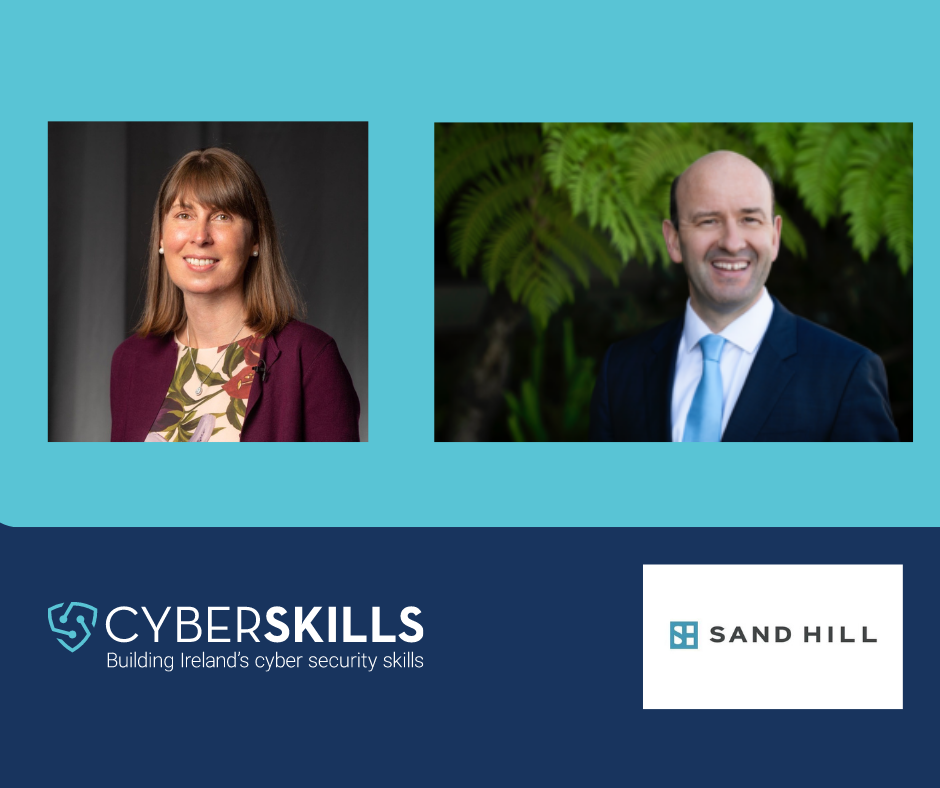Quick answers to Quick Questions: Ivan Houlihan, SVP & Head of West Coast U.S for IDA Ireland
16 Aug, 2023
Min read

A slightly different conversation this week as we speak to Ivan Houlihan, Senior Vice President and Head of the West Coast of the United States for IDA Ireland–the Investment and Development Agency of the Irish Government, which promotes foreign direct investment into Ireland.
Based in California, Ivan leads the team that works closely with existing and potential clients in technology, financial services, life sciences and engineering throughout the Western US and Mexico.
We hope you enjoy this week’s angle about on Cybersecurity, cyber skills and microcredentials.
M.R. Rangaswami: How Do Microcredentials Address the Cybersecurity Talent Scarcity Problem?
Ivan Houlihan: While nations pass resolutions and laws that try to prevent cybercrime, the most widespread answer is increasing the supply of expert security talent to stay ahead of the criminals.
Ivan Houlihan suggests an innovative approach, which involves the concept of microcredentials. These are small, accredited courses that allow candidates to pursue highly focused upskilling and reskilling that responds to specific market needs. Besides creating qualified new candidates to quickly come on board, this solution opens the door to workers that might otherwise not have pursued careers in cybersecurity.
As the head of the West Coast U.S. for IDA Ireland, Houlihan has seen an increasing number of American technology firms with operations in Ireland employ this strategy to address their cybersecurity talent crunch.
When it comes to microcredentials in cybersecurity, Houlihan believes that Ireland’s innovative training programs can become a model for other nations seeking to address the serious issue of cybercrime, which is predicted to cost the world $10.5 trillion by 2025. In this quick Q&A, he explains the basics of setting up a microcredentials program in the cybersecurity space – although microcredentials can be earned in other technical areas, too.
M.R. Rangaswami: What are some of the current issues impacting cybersecurity staffing and why are microcredential programs a reasonable solution?
Ivan: Technology workers in general are often in short supply, but when it comes to qualified cybersecurity personnel, the problem is compounded by educational requirements along with needed specific skills that take time and money for those seeking to enter this field. Technical degrees, specialized training and often, often some graduate work, have discouraged many would-be candidates, particularly those put off by the prospect of student loans and related barriers. One of the biggest myths in the cybersecurity field is that it’s just for people with high proficiency in math, men only or those with certain graduate degrees. People also assume they must go to renowned universities to study for the field in order to pursue such careers. All these factors have conspired to decrease the pool of qualified candidates.
Microcredential programs short-circuit the time and cost of pursuing a lucrative cybersecurity career, although the field does require some technical training as a starting point. Fortunately, being male, having graduate degrees and other assumptions don’t apply, however. Microcredentials bring down the cost and time commitments while increasing cybersecurity job opportunities for women, military veterans, minority groups, people from financially disadvantaged backgrounds, workers from other departments and others previously not often found in the profession. And since microcredential programs are typically online, they are of short duration and can be “stacked” or combined to form bigger accreditations – this makes it easier to get the right kind of training for a promising new career. The most successful microcredential programs demonstrate a collaborative effort between universities, governments, research institutions and industry, with the latter providing curriculum input based on what the candidates need to know to hit the ground running.
M.R.: Describe the cybersecurity microcredential programs you’re aware of, how they operate and the results so far.
Ivan: Technology workers in general are often in short supply, but when it comes to qualified cybersecurity personnel, the problem is compounded by educational requirements along with needed specific skills that take time and money for those seeking to enter this field. Technical degrees, specialized training and often, often some graduate work, have discouraged many would-be candidates, particularly those put off by the prospect of student loans and related barriers. One of the biggest myths in the cybersecurity field is that it’s just for people with high proficiency in math, men only or those with certain graduate degrees. People also assume they must go to renowned universities to study for the field in order to pursue such careers. All these factors have conspired to decrease the pool of qualified candidates.
It’s encouraging to say Ireland has been ahead of other nations in its efforts to increase the supply of cybersecurity talent. Last year, the International Information System Security Certification Consortium, or (ISC)², the world’s largest IT security organization, released a report that found Ireland closed its cybersecurity skills gap by 19.5% while the global gap grew by 26.2%. Through a government grant in 2020, Ireland created Europe’s first microcredential program, called CyberSkills, a collaboration between national agencies, industry and three leading Irish universities led by Donna O’Shea, Chair of CyberSecurity, MTU.
Sign up and instruction are online and in addition to 30 carefully designed microcredentials that learners can take as standalone pieces of learning or integrated into predesigned academic pathways, the program utilizes what’s called the “cyber range,” a unique, cloud-based, secure sandboxed area that simulates real-world scenarios and environments where students can test their new skills.
In talking to O’Shea, she told us that CyberSkills has already trained hundreds of people – and the program is expanding. She believes that the simple but effective collaboration concept of this program could be duplicated by other nations wishing to accelerate and expand their supply of cyber talent. The key, underlying concept of CyberSkills is that the training is totally focused on graduates being able to walk into jobs immediately and have the knowledge they need to be effective.
At a higher level, everyone should look at these microcredential programs as a major innovation in workforce development and lifelong learning. Being largely co-designed by industry makes them relevant and effective while their ease of use and low cost create new avenues for skills development long into the future.
The above article was posted on sandhill.com, of which M.R. Rangaswami is a Co-Founder of.


.jpg)
